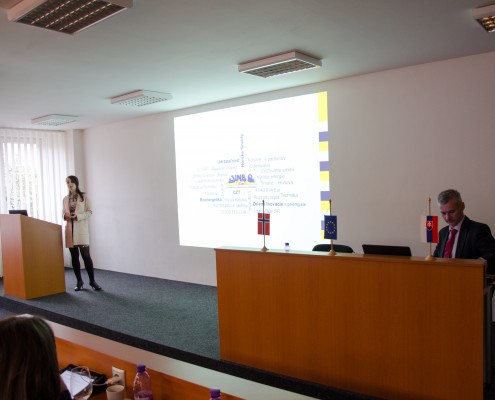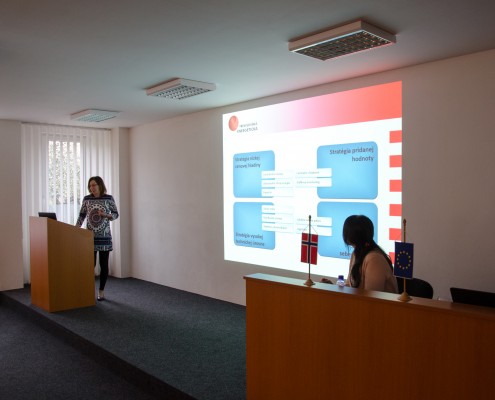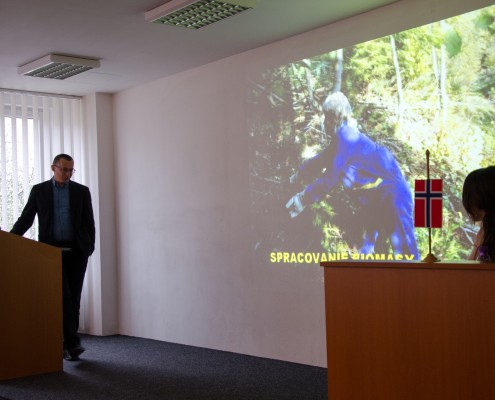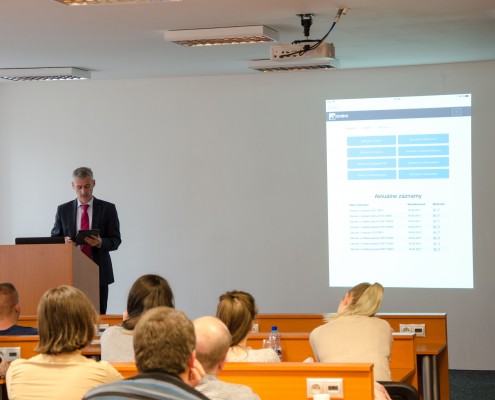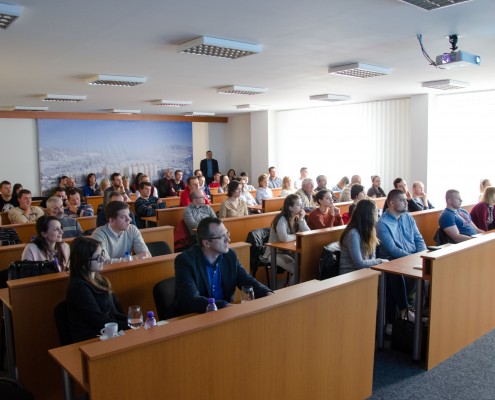The SINBIO Final Conference Ends Multiple Efforts to Develop Bioenergy in Slovakia
On 27 April 2017, the final conference of the SINBIO project was held in Hriňová, where the results were presented.
An almost 4-year effort in the preparation and implementation of the project has brought many invaluable experiences to the project team (from the preparation of 9 public procurements, through cooperation with foreign-Norwegian partners, to the construction works themselves).
The town of Trebišov has been heated for more than a year with a straw and woodchips through a modern energy source of Trebišovská energetická, s.r.o. company, located in the southern outskirts of the city, outside the residential areas. The pilot planting of fast-growing woods was also carried out in the area, which was commenced with the opening ceremony of the new Trebišov boiler house in May 2016.
For the transport and processing of the biomass necessary for the production of heat (not only in Trebišov), the new fleet of transport equipment of the Biopalivá division started to be used. In order to reduce the logistics costs, the Hriňová Division Service Center has also been built, which since the summer of 2016 has been able to provide service and smaller repairs of the transport equipment. A new information system, which will allow effective processing of real-time biomass logistics data, should also help to further increase logistical cost savings. Internal training of employees, as well as external seminars in the field of heating and energy business are carried out in the reconstructed building of the administrative center.
Overall, due to the systemic change of the fuel base from fossil fuels to local biomass, more than 20 jobs have been created in the project (including several jobs occupied by workers from the local marginalized community in Trebišov).
Summarized and underlined, the SINBIO project, implemented within 4 districts of Central and Eastern Slovakia, contributed to the long-term reduction of environmental pollution by greenhouse gases (by more than 7 thousand tons of CO2 per year), increased energy self-sufficiency, but helped also local economy to earn each year almost 2 mil. EUR. The ambition of the project, which is gradually being fulfilled, is to become an example of the best practice of a system solution in the bioenergy sector in Slovakia.





